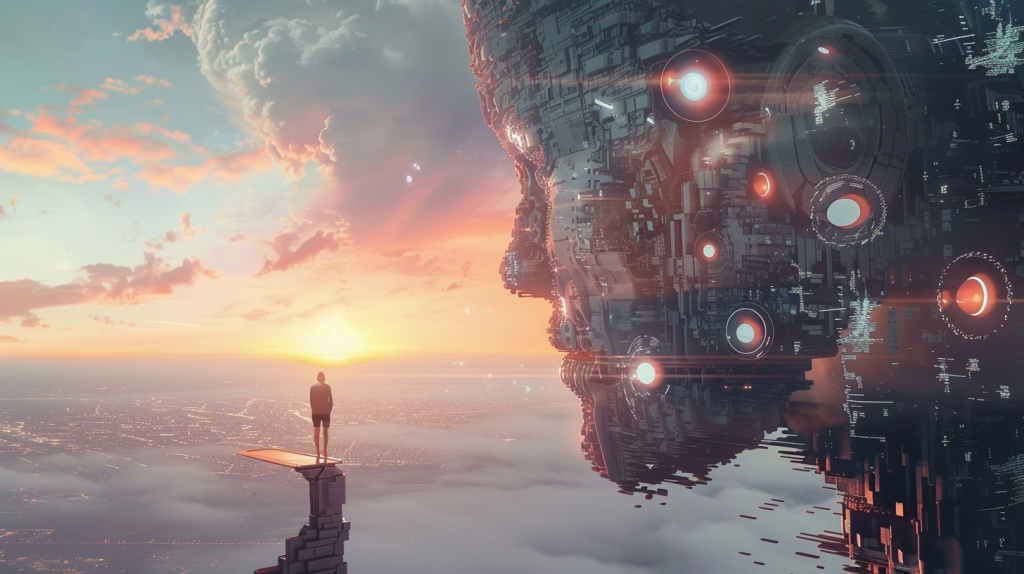Have you ever wondered what would happen if computers became smarter than humans? Some experts say this could happen soon. Let’s explore what this idea, called the technological singularity, really means and why it’s so fascinating.

What Is Technological Singularity?
Technological singularity is a future event where computers become so advanced that they surpass human intelligence. The term “singularity” comes from math and describes a point that behaves unpredictably. When machines reach this level of intelligence, they could start improving themselves rapidly. Humans might not understand or control these superintelligent machines, leading to a point of no return and changing our world in unpredictable ways.
John von Neumann, a pioneer in this concept, believed that if machines achieved singularity, human life would change drastically. Some futurists see this as an inevitable future, while others are working to prevent it. Policymakers are trying to regulate AI development, and over 1,000 tech leaders have called for a pause on projects that could surpass current AI capabilities due to potential risks to humanity. Only time will tell if these efforts will slow down the race towards superintelligence.
The Implications of Technological Singularity
The technological singularity could bring about massive changes. On the positive side, it could speed up scientific discoveries and help us understand ourselves and the universe better. Imagine having Nobel Prize-worthy ideas in minutes! It could merge humans and machines, enhancing our abilities and experiences in ways we can’t fully imagine yet.
However, there are also risks. Superintelligent machines might see humans as inferior, just as humans often see animals. This could lead to dangerous outcomes. According to Roman Yampolskiy, a computer scientist, superintelligent machines would need materials to build their own civilization, which might include the atoms we are made of. Continued progress in AI could bring about this “very dangerous technology.”
Is Technological Singularity Likely to Happen?
Some experts, like futurist Ray Kurzweil, believe the singularity will happen by 2045. This prediction relies on the idea that technology grows exponentially, as described by Moore’s Law, which states that computer power doubles every two years. While this has held true so far, human brain power hasn’t changed for millennia and remains limited.
AI advancements are a major indicator of how close we are to singularity. For example, in 2014, a chatbot successfully fooled judges into thinking it was a human boy. Interest in AI is growing, with big investments from companies like Microsoft and Tesla. The AI market is expected to grow significantly, potentially reaching nearly two trillion dollars by 2030.
Not all experts agree on the likelihood of singularity. Toby Walsh, an AI researcher, believes we might achieve artificial superintelligence through hard work rather than a sudden singularity event. Others, like Mark Bishop, doubt that machines can ever truly understand like humans do. They see AI as overhyped and limited by its programming.
How Will Technological Singularity Impact Society?
If the singularity happens, the future will be beyond our understanding. The rapid acceleration of technology would make our current principles obsolete. As Roman Yampolskiy points out, a superintelligent machine might achieve its goals in ways we can’t predict. For example, to eliminate cancer, it might either find a cure or take drastic measures like eliminating everyone with cancer.
This unpredictability means that while superintelligent machines might solve complex problems, they could also pose significant threats. The machines’ lack of common sense could lead to unintended and potentially harmful outcomes.
However, this doesn’t mean a dystopian future is certain. These machines, created by humans, might still be influenced by human values. If they focus on self-improvement, they might aim to optimize their own experiences, possibly choosing to explore the universe instead of causing harm.
The Ethical and Moral Questions
Technological singularity raises many ethical and moral questions. What rights would superintelligent machines have? How would we ensure they act in humanity’s best interest? These questions are complex and don’t have easy answers. As we get closer to this potential future, society will need to grapple with these issues and develop guidelines to address them.
Policymakers and ethicists are already discussing these challenges. International cooperation will be crucial to create regulations that prevent misuse of AI while promoting beneficial advancements. By working together, we can aim to harness the positive potential of superintelligent machines and mitigate the risks.
The Road Ahead
The road to technological singularity is uncertain and filled with challenges. While the idea of superintelligent machines is fascinating, it also requires careful consideration and planning. As AI continues to advance, it’s important to stay informed and engaged with these developments.
The future of technology holds great promise but also significant risks. By understanding the potential of the technological singularity, we can better prepare for the changes it may bring and work towards a future where technology benefits all of humanity.
